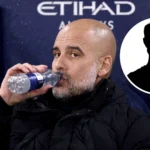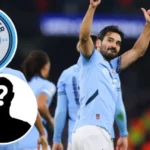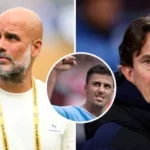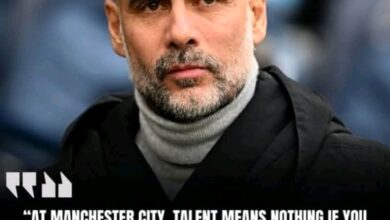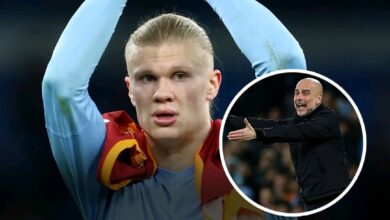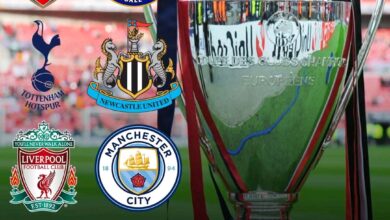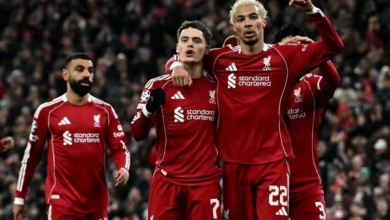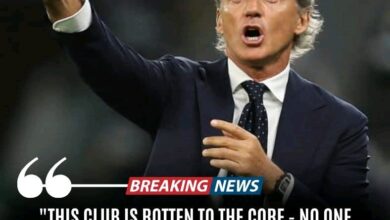Manchester City still keen, make approach for signing – ‘Good chances’ of move after Club World Cup
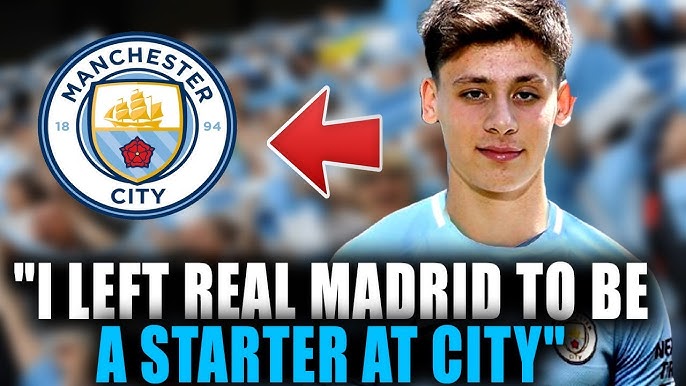
The summer transfer window of 2025 has been marked by intense speculation and strategic maneuvering as Europe’s elite clubs seek to strengthen their squads. Among the most intriguing narratives to emerge is Manchester City’s sustained interest in Flamengo’s promising right-back Wesley França, a pursuit that has captivated football enthusiasts across continents and highlighted the increasingly global nature of modern football recruitment.
The Genesis of City’s Interest
The story of Manchester City’s pursuit of Wesley França began to take shape towards the conclusion of the 2024-25 season when reports from Brazil first surfaced suggesting that Pep Guardiola had personally identified the young defender as a priority target. This revelation was not entirely surprising to those who have closely followed Guardiola’s recruitment philosophy throughout his tenure at the Etihad Stadium. The Catalan manager has consistently demonstrated a preference for versatile, technically gifted players who can adapt to his intricate tactical systems, and França fits this profile perfectly.
The initial reports suggested that Guardiola had been impressed by França’s performances in both domestic Brazilian competitions and international fixtures. The young defender’s ability to contribute effectively in both defensive and attacking phases of play, combined with his composure under pressure and excellent crossing ability, made him an attractive proposition for a Manchester City side that has long prioritized full-backs who can function as auxiliary playmakers in their possession-based system.
What makes this pursuit particularly fascinating is the timing and context surrounding it. Manchester City’s interest in França emerged during a period when the club was already well-stocked with talented full-backs, including the likes of Kyle Walker, João Cancelo, and Nathan Aké, who have all operated in wide defensive positions under Guardiola. This suggested that the club’s interest in França was not born out of immediate necessity but rather represented a strategic long-term investment in young talent with significant potential for development.
The Club World Cup Connection
The narrative surrounding França’s potential move has been significantly influenced by the Club World Cup, a tournament that has provided both Manchester City and Flamengo with a unique platform to showcase their talents on the global stage. Both clubs successfully navigated the initial rounds of the competition, creating an environment where direct observations and informal discussions between club officials became not only possible but inevitable.
The Club World Cup has historically served as more than just a competition for bragging rights between continental champions. It has often functioned as an unofficial transfer marketplace, where clubs can assess players up close and engage in preliminary discussions about potential moves. For Manchester City, the tournament presented an invaluable opportunity to observe França in a high-pressure environment against elite opposition, providing Guardiola and his technical staff with crucial data points that statistics and video analysis alone cannot provide.
The presence of both clubs at the tournament has also facilitated what sources describe as informal discussions between representatives, although these conversations have yet to translate into concrete offers. The unique setting of the Club World Cup, where clubs from different continents converge for a brief but intense period, has created a natural environment for relationship-building and preliminary negotiations that might not have occurred under normal circumstances.
From Flamengo’s perspective, the Club World Cup represents both an opportunity and a potential complication. Success in the tournament would undoubtedly increase França’s profile and market value, but it would also intensify interest from European clubs who might have previously been unaware of his capabilities. This dual-edged nature of the tournament’s impact on transfer negotiations adds an additional layer of complexity to an already intricate situation.
The Brazilian Context and Flamengo’s Position
To fully understand the dynamics of this potential transfer, it is essential to consider the broader context of Brazilian football and Flamengo’s position within it. As one of Brazil’s most successful and financially stable clubs, Flamengo has developed a reputation for nurturing young talent while also being shrewd negotiators in the transfer market. The club’s approach to player development and sales has been shaped by decades of experience in dealing with European clubs seeking to acquire their brightest prospects.
Wesley França represents the latest in a long line of promising talents to emerge from Flamengo’s academy system. At just 21 years of age, he has already established himself as a regular in the first team and has attracted attention from Brazil’s national team setup. His rapid development and consistent performances have not gone unnoticed by European scouts, leading to the current situation where multiple clubs are vying for his signature.
Flamengo’s handling of the França situation reflects their evolved approach to player sales. Rather than being desperate to cash in on their young talent, the club has adopted a position of strength, setting a clear valuation of at least €30 million for the defender. This figure, as communicated by Flamengo director José Boto, represents not just the player’s current market value but also accounts for his potential future development and the premium associated with acquiring a player of his age and ability.
The club’s prioritization of Guillermo Varela’s contract renewal, as reported by Globo Esporte, provides additional insight into their strategic thinking. By securing Varela’s future, Flamengo would ensure they have adequate cover at right-back, potentially making them more willing to entertain offers for França. This pragmatic approach demonstrates the club’s awareness that losing França is a realistic possibility while also ensuring they are not left vulnerable in that position.
The European Competition Landscape
Manchester City’s interest in Wesley França is not occurring in isolation. The competitive landscape for the young defender’s signature includes several other prominent European clubs, most notably Juventus and Inter Milan from Serie A. This multi-club interest has created a complex dynamic that extends beyond simple financial considerations to include factors such as playing time guarantees, project vision, and the player’s personal preferences.
Juventus and Inter Milan’s involvement in the pursuit adds an Italian dimension to what might otherwise have been a straightforward negotiation between English and Brazilian clubs. Both Italian giants have historically been successful in the South American transfer market, leveraging their strong networks and relationships built over decades of successful acquisitions. However, reports suggest that while both clubs have made inquiries, neither has made significant progress in advancing their interest to the concrete offer stage.
The involvement of multiple Premier League clubs, including two unnamed teams beyond Manchester City, further complicates the landscape. Brighton’s reported £20 million bid, while not confirmed by all sources, illustrates the level of interest that exists for França across different tiers of English football. This multi-layered competition creates both opportunities and challenges for all parties involved, as it establishes a competitive market that could drive up the player’s valuation while also providing him with multiple attractive options.
The international nature of this competition also highlights the increasingly global reach of top-level football recruitment. The fact that clubs from England, Italy, and potentially other countries are all pursuing the same Brazilian teenager demonstrates how modern scouting networks have eliminated geographical barriers in talent identification and acquisition.
Tactical Considerations and Guardiola’s Vision
Pep Guardiola’s specific interest in Wesley França must be understood within the context of his tactical philosophy and Manchester City’s playing style. Throughout his managerial career, Guardiola has consistently emphasized the importance of full-backs who can contribute significantly to both defensive solidity and attacking creativity. This dual responsibility requires players with exceptional technical ability, tactical intelligence, and physical attributes that allow them to excel in multiple phases of play.
França’s profile suggests he possesses many of the qualities that Guardiola values in his full-backs. His ability to deliver accurate crosses from wide positions, combined with his pace and defensive awareness, makes him a potentially valuable addition to City’s tactical system. The young Brazilian’s composure on the ball and willingness to take risks in possession align with the principles that underpin City’s approach to building attacks from defensive positions.
The potential integration of França into Manchester City’s squad would also represent a continuation of Guardiola’s preference for having multiple tactical options available. The coach’s rotation policy and tactical flexibility have been key factors in City’s recent success, and adding another versatile full-back would provide additional depth and tactical possibilities. França’s youth also aligns with the club’s broader strategy of investing in players who can contribute immediately while also developing over the long term.
From a developmental perspective, working under Guardiola could represent an ideal scenario for França’s continued growth as a player. The Catalan manager’s reputation for improving players, particularly those in defensive positions, could be a significant factor in the player’s decision-making process. The opportunity to learn from one of the world’s most successful coaches while competing at the highest level of European football would undoubtedly appeal to any ambitious young player.
Financial Dynamics and Market Considerations
The financial aspects of França’s potential transfer reflect broader trends in the modern football transfer market. Flamengo’s €30 million valuation represents a significant but not unprecedented fee for a promising young defender, particularly one with França’s profile and potential. For Manchester City, this figure falls well within their financial capabilities, though it would still represent a substantial investment in an unproven player at the highest European level.
The affordability of the transfer for Manchester City should not obscure the complexity of the financial negotiations involved. Beyond the initial transfer fee, discussions would need to encompass salary structures, performance-related bonuses, sell-on clauses, and various other contractual elements that have become standard in modern football transfers. These negotiations often prove as challenging as agreeing on the basic transfer fee, particularly when dealing with a player of França’s age and potential.
The reported interest from Brighton at £20 million creates an interesting financial dynamic. If accurate, this bid would represent a lower valuation than Flamengo’s stated asking price, potentially creating space for Manchester City to structure a more attractive offer. However, the club’s apparent reluctance to move beyond preliminary discussions suggests they may be waiting for the market to develop further or for França’s situation to change in a way that might reduce his valuation.
The broader economic context of football transfers in 2025 also influences these negotiations. Clubs have become increasingly cautious about large expenditures, particularly on players who have not proven themselves in European competition. This caution must be balanced against the recognition that talented young players often represent better value than established stars, both from financial and sporting perspectives.
The Player’s Perspective and Career Considerations
While much of the discussion surrounding Wesley França’s potential transfer focuses on the clubs involved, the player’s own perspective and career aspirations play a crucial role in determining the outcome. At 21 years of age, França stands at a pivotal point in his career where the decisions he makes could significantly influence his long-term trajectory as a professional footballer.
The opportunity to join Manchester City represents more than just a financial upgrade; it would provide França with access to elite-level coaching, world-class facilities, and the chance to compete in the Premier League and Champions League. These factors could be instrumental in his development as a player and his aspirations to establish himself as a regular in the Brazilian national team setup.
However, the move to Europe also carries risks that França and his representatives must carefully consider. The transition from Brazilian football to the Premier League represents a significant step up in terms of pace, physicality, and tactical sophistication. Young players who make this transition successfully often see their careers flourish, but those who struggle can find their development stunted by limited playing time and the pressure of justifying large transfer fees.
The competitive situation at Manchester City, where França would need to compete with established internationals for playing time, adds another layer of complexity to his decision-making process. While the opportunity to learn from elite players could accelerate his development, the risk of becoming a peripheral figure in a star-studded squad might make alternative options more attractive from a purely footballing perspective.
França’s personal preferences regarding lifestyle, culture, and family considerations will also influence his decision. The move from Rio de Janeiro to Manchester represents a significant cultural adjustment that extends beyond professional considerations to encompass personal and family factors that could prove decisive in his ultimate choice.
Implications for the Future
The outcome of Manchester City’s pursuit of Wesley França will have implications that extend beyond the immediate transfer itself. For Manchester City, successfully acquiring França would represent another coup in their ongoing efforts to maintain their position at the pinnacle of world football. The addition of a promising young defender would provide tactical flexibility while also representing a sound financial investment in a player with significant resale value.
For Flamengo, the potential sale of França would demonstrate their continued ability to develop and monetize young talent. The transfer fee received could be reinvested in infrastructure, youth development, or new player acquisitions that strengthen their competitive position in Brazilian football. The successful completion of such a transfer would also enhance Flamengo’s reputation as a club capable of preparing players for European football.
The broader implications for Brazilian football and the South American transfer market are also significant. A successful transfer of França to Manchester City would reinforce the pathway for young Brazilian players to reach elite European clubs, potentially encouraging further investment in youth development across the country. It would also demonstrate the continued appetite of European clubs for South American talent, maintaining the financial incentives for clubs to invest in player development.
The transfer would also contribute to the ongoing evolution of the right-back position in modern football. França’s profile as an attacking-minded defender reflects broader tactical trends that have seen full-backs become increasingly important in teams’ offensive strategies. His success or otherwise at Manchester City could influence how other clubs approach the recruitment of players in this position.
Conclusion: A Transfer Saga with Global Implications
The pursuit of Wesley França by Manchester City represents more than just another transfer story; it encapsulates many of the key themes that define modern football. The globalization of talent identification, the financial dynamics of player transfers, the tactical evolution of playing positions, and the personal decisions faced by young players seeking to advance their careers all converge in this single narrative.
As the Club World Cup continues and the summer transfer window progresses, the resolution of França’s future will be closely watched by football observers worldwide. Whether he ultimately joins Manchester City, moves to another European club, or remains at Flamengo for another season, the outcome will provide valuable insights into the current state of the football transfer market and the factors that influence major player movements.
The “good chances” of França’s departure from Flamengo, as reported by Brazilian media, suggest that this story is far from over. Manchester City’s continued interest, despite not yet making a formal offer, indicates that the club sees significant value in the young defender. As negotiations continue and the competitive landscape evolves, the resolution of this transfer saga will likely provide one of the summer’s most interesting case studies in modern football recruitment and player development strategies.
The ultimate outcome will depend on a complex interplay of factors including Manchester City’s willingness to meet Flamengo’s valuation, França’s personal preferences, the competition from other interested clubs, and the broader strategic considerations of all parties involved. Regardless of the final destination, Wesley França’s journey from promising Brazilian prospect to internationally sought-after talent illustrates the increasingly connected nature of world football and the opportunities available to exceptional young players in the modern game.
